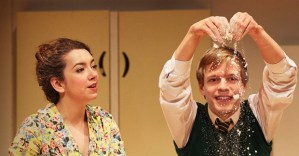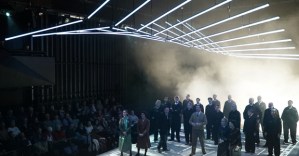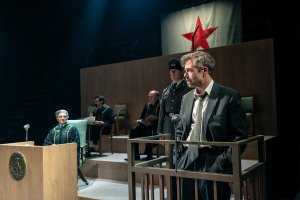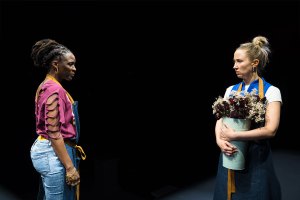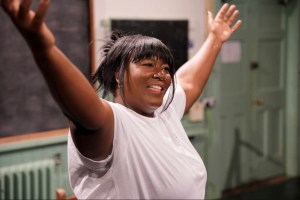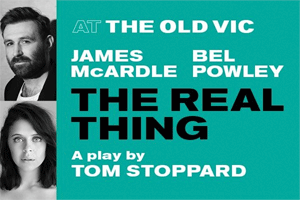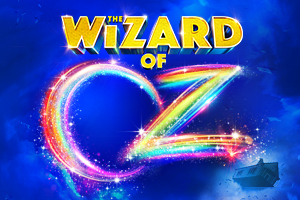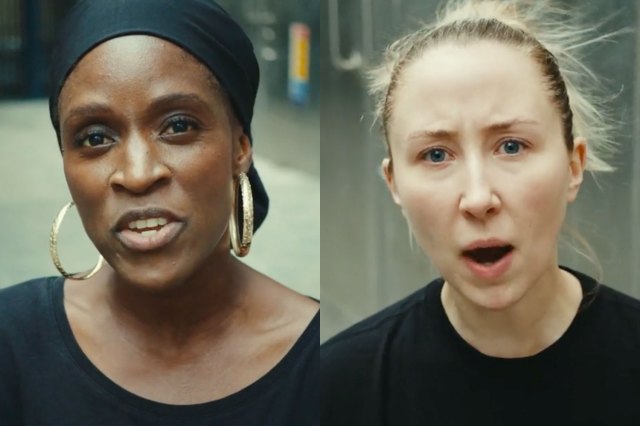Review: Blood Wedding (Salisbury Playhouse)
Barney Norris transplants Lorca’s tragedy to a Wiltshire town
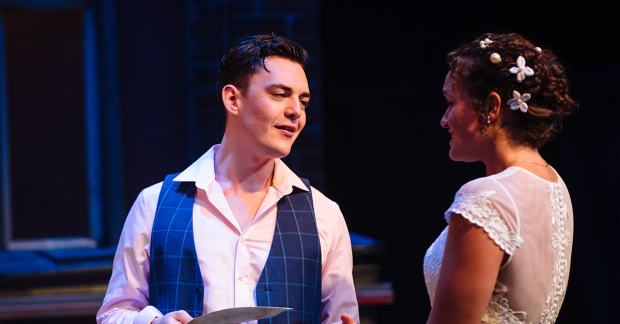
© Helen Murray
Still in his early 30s, award-winning writer Barney Norris already has an impressive body of work. Much of it is steeped in the Wiltshire landscape where he grew up and where he now sets this take on Lorca's Blood Wedding. Although Lorca rooted his action in the Spanish countryside, it has transplanted effectively before to other atavistic rural communities, for example in the mythic Irish setting of Marina Carr's 2019 version for the Young Vic.
Norris reimagines the play with a precise and poetic sense of spirit of place, which he conjures in a setting that at first sight seems counterintuitive, the back of a village hall, complete with notice board and bin store.
Yet designer James Perkins' set realises Norris's vision of a brooding landscape, a world around and beyond the village, thanks to the roof onto which his characters clamber to connect with the land and sky beyond. And as Lorca would desire, above it all is the outsize 'supermoon' (lighting Johanna Town), a spotlight both illuminating and pitiless.
Norris pares the characters down to just six, all precisely drawn and sensitively realised by a pitch-perfect cast in Alice Hamilton's subtly orchestrated production.
Georgie and Rob are the prospective bride and groom, planning to marry on the cheap and inspecting this rundown hall just three weeks before the proposed wedding date, to the disquiet of Rob's mum Helen. It does not help that her son is just 18, while Georgie is four years older. Reece Evans' laddish, affectionate Rob hits exactly the right note of upbeat optimism, his glass more than half full. If opposites attract, Lily Nichol's Georgie is his ideal partner, for she is clearly troubled despite her obvious affection for the loveable Rob. Much of the tension comes from the couple's relationship with Teresa Banham's Helen, a beautifully nuanced portrayal of a now single parent trying hard to express her reservations without being accused of interfering.
True to Lorca, Norris ratchets up that tension when Georgie meets an old classmate, Eleanor Henderson's brave and brittle Danni, valiantly negotiating her little son's pushchair and her second pregnancy – plus life on a caravan site with traveller partner Lee. For it is apparent that Georgie and Lee have history together and there are revelations and confrontations that look to lead to violence and tragedy.
Irish actor Emmet Byrne is perfectly cast as dark, brooding Irish Lee. Norris endows him with an unexpectedly poetic sense of place. He is caught climbing above the vicissitudes and banalities of life as a jobbing builder in the gig economy as he watches for sunrise on the hall's roof, trying to make up for reaching a hilltop just too late to catch sunset the night before.
At the poetic heart of the play is a character deeply rooted in this deprived community at once at odds and in harmony with the surrounding landscape. Brian, the bumbling septuagenarian hall caretaker, might be a gently comic character, but he is rising above the tragedy of a lost child and the loneliness of life as a widower, his heart and thoughts constantly in the churchyard where he looks to join them eventually. Jeff Rawle is by turns funny and heart-breaking and to him falls much of the poetic sensibility of the play.
That cheeky prosaic Rob opens the play recalling a ghostly vision he had during a drunken night out with the lads and that its significance gradually becomes apparent, demonstrates perfectly Norris's ability to realise and share his own vision. The whole makes for a richly satisfying evening.






